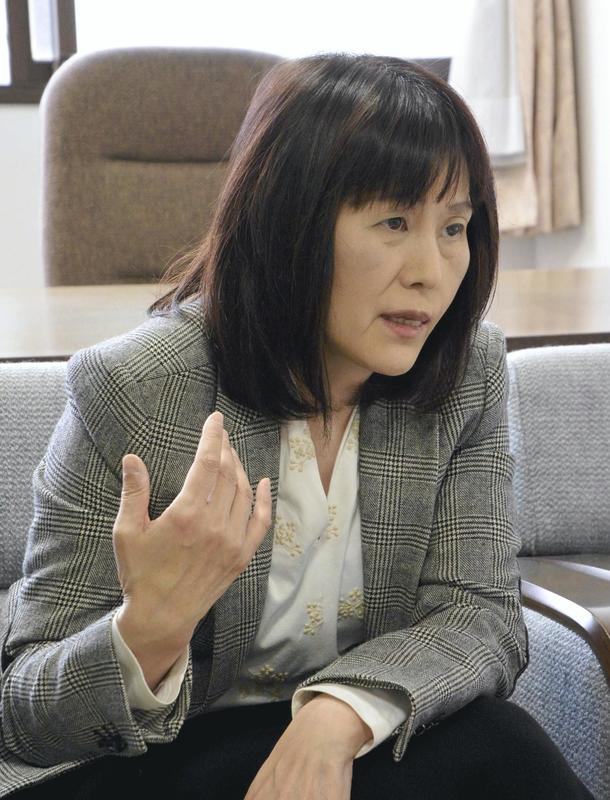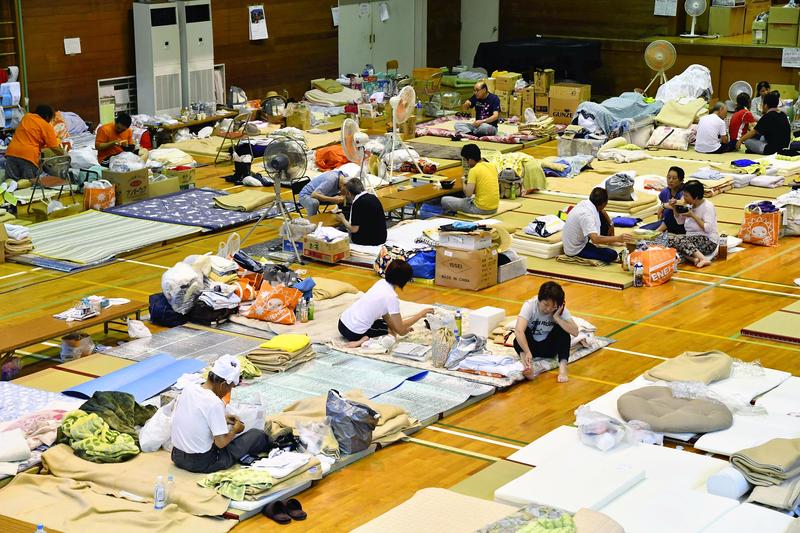
Torrential rains in western Japan have caused widespread damage. We asked Akiko Sakai, a professor of disaster nursing at the University of Fukui's Faculty of Medical Sciences, who is familiar with many disaster-affected areas in Japan and abroad, and who participated in the response to the recent rain disaster in Hiroshima Prefecture, about the perspective required for disaster relief work. The following is excerpted from the interview.
Injuries must be treated

The Yomiuri Shimbun: What problems have you noticed on the scene?
Sakai: They're still searching for missing people. The road conditions are terrible, and moving people and things is a big problem. There are some places where [drinking] water is still cut off and water supply trucks aren't reaching them fast enough, so I'm really worried about effects like the spread of infectious diseases.
Q: Now the cleanup of the flooded houses is starting in earnest.
A: It seems more people have gotten injured because of that. You need long sleeves, pants and gloves to prevent injuries while cleaning up. If you neglect a small wound, putting priority on the cleanup work, thinking "I have to get this done no matter what," the wound could fester or cause a serious infection like tetanus. It's important to make sure to get treated. We really need water even to just keep the evacuation centers sanitary.
In the past, I've found people who'd been lying down in shelters for long periods, who turned out to be elderly people who had injured their legs and couldn't move because of the pain. This is something volunteers need to watch out for.
Frequent breaks
Q: Are there a lot of respiratory infections, too?
A: There's a ton of fine dust floating in the air after a water disaster. Masks are essential, but people take them off because it's hot. They need to protect themselves against the heat and take precautions such as frequent breaks.
The heat also brings a risk of heatstroke. A lot of volunteers were hospitalized for heatstroke after the 2004 Fukui Prefecture flood. If you're volunteering, make sure to take in sufficient water, don't push yourself and safeguard your health.
Q: Are we approaching the time when people will start getting tired?
A: Everyone works really hard for some time after a disaster, so they will start to feel tired soon. They'll lose their appetites and become physically weaker. But the support is still inconsistent, and there are some evacuation centers where everyone is already exhausted, as they don't have enough volunteers.
Many people in evacuation centers develop high blood pressure due to a lack of sleep, so it's important for anyone who has trouble sleeping to secure an environment they can sleep in.
Carrying things including water is harder work than it looks, so it's important to rest even if you have to force yourself. We often tell people, "Don't just sit down, but actually lie on the floor, relax and get some real rest."
Prevent isolation of elderly
Q: How about the victims in their homes?
A: I'm actually really worried about that too. It wasn't until we started checking the areas around the evacuation centers that we found hearing-impaired people having problems without being noticed by others, isolated elderly people living alone, people whose symptoms had worsened because their medication had been washed away, and families that were stuck because elderly members were forced to take care of even more aged members.
Elderly people especially don't have many ways to send out an SOS. Volunteers should make sure to check the areas around evacuation centers, but that requires a tremendous amount of manpower. We just don't have enough help.
Volunteers needed
Q: What sorts of psychological problems come up?
A: After a disaster, disparities between people become a big concern. Some areas are featured in the media while others aren't. Some places receive generous support while others don't. Houses were washed away while other houses across the street remained.
Economic problems can also weigh heavily on people, and such differences create a feeling of abandonment that can strain interpersonal relations in local communities that had been strong before the disaster. I think we need volunteers who can listen to and accept these people's stories.
Q: This is looking ahead a bit, but what sorts of problems will come up after people move into temporary housing?
A: Some people will shut themselves up in their rooms out of exhaustion, or become alcoholics. Disaster relief is a long-term battle. This disaster has affected a large area, and the regions and communities have individual characters. We need to build trusting relationships with local people to provide the right support for each region.
--This interview was conducted by Yomiuri Shimbun Senior Writer Akiko Morikawa.
(From The Yomiuri Shimbun, July 15, 2018)
--Akiko Sakai / University of Fukui Professor
Sakai, 61, has been on the scene of many disasters, including the Great Hanshin Earthquake, the Tokai flood, the Sichuan earthquake and the Great East Japan Earthquake. She is the director of the Japan Society of Disaster Nursing and trains disaster-specialized nurses at the University of Fukui graduate school.
Read more from The Japan News at https://japannews.yomiuri.co.jp/







